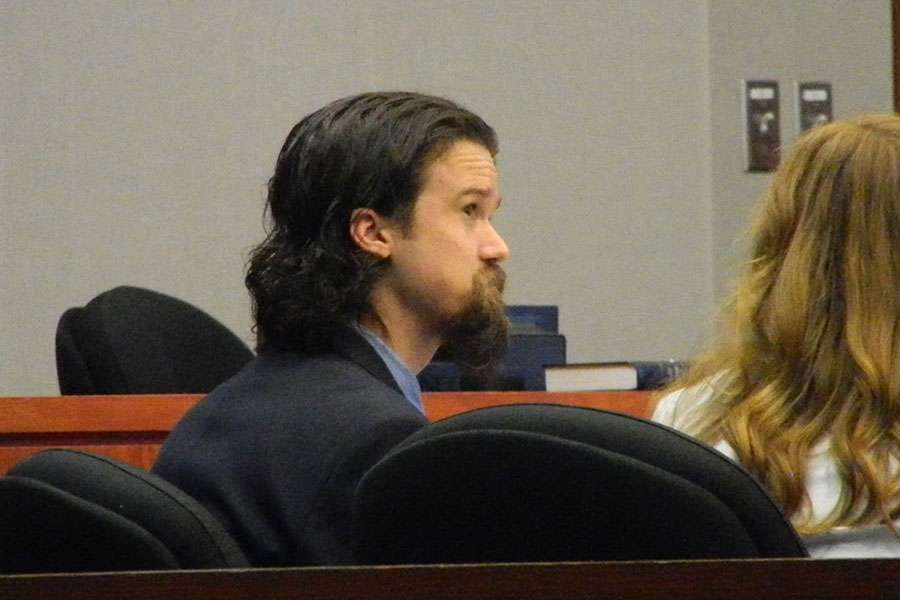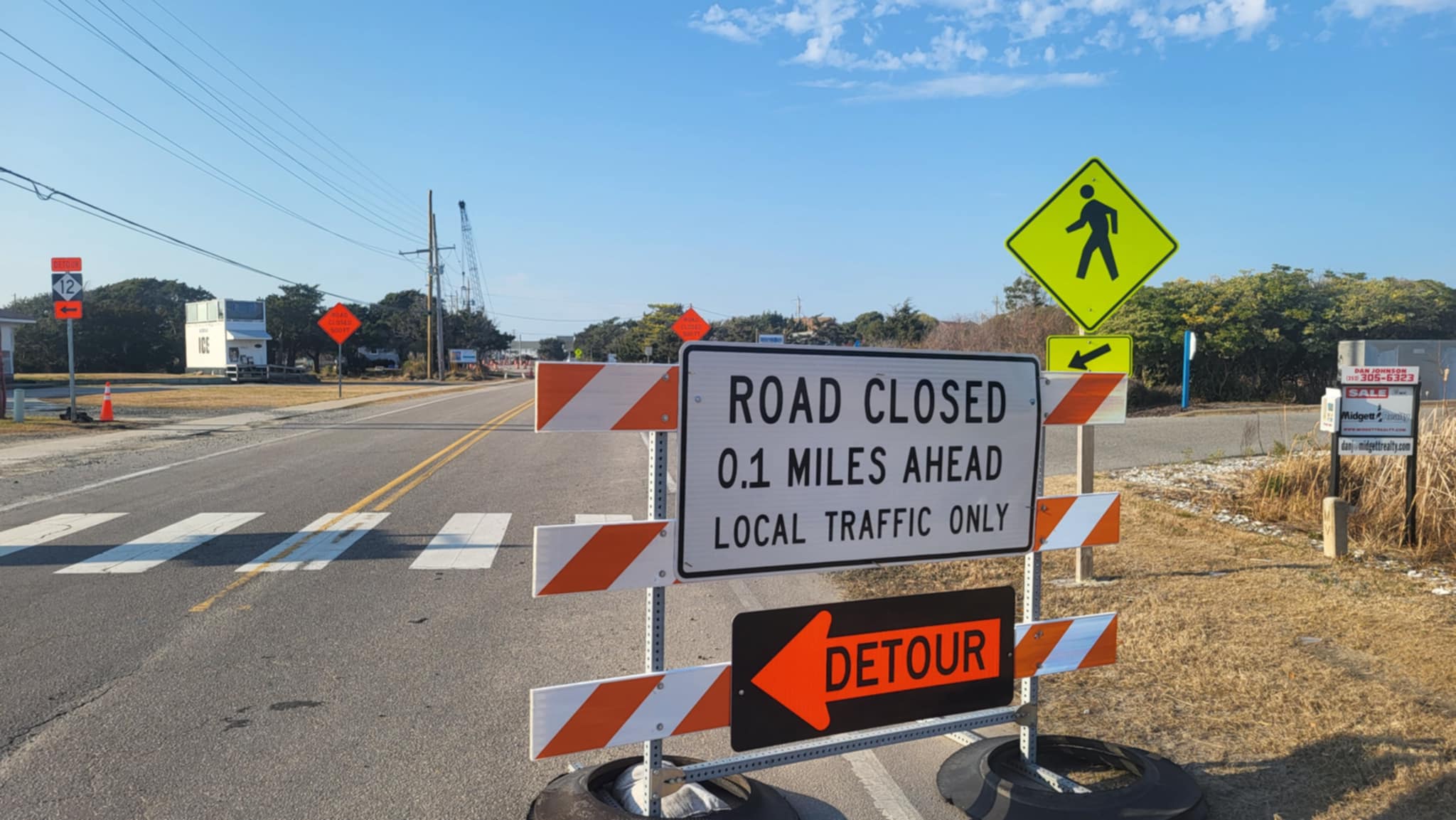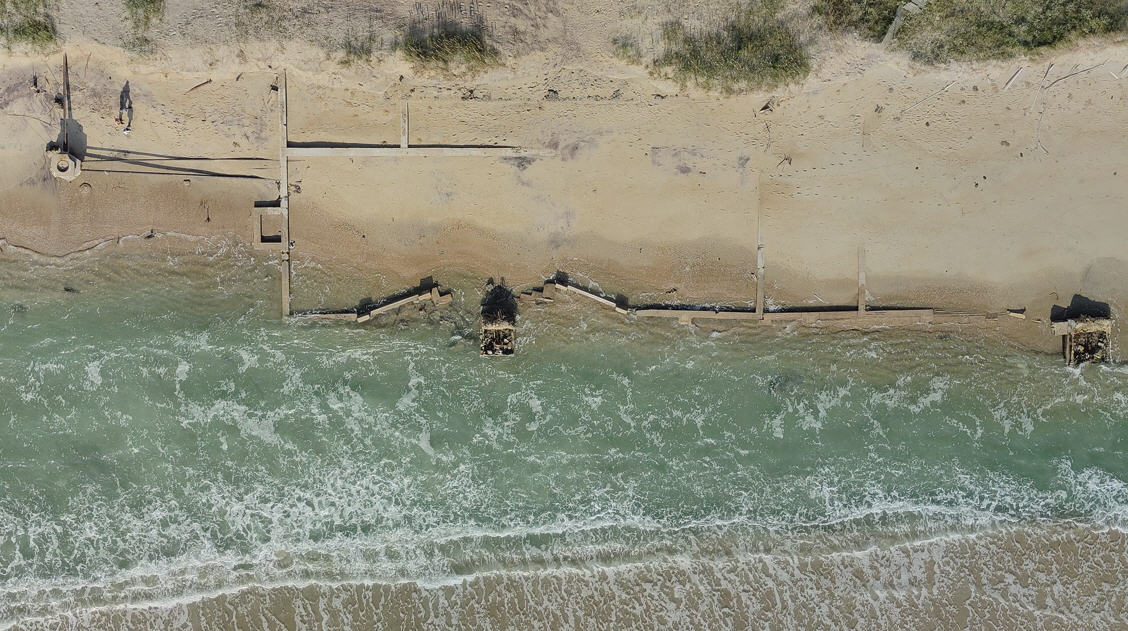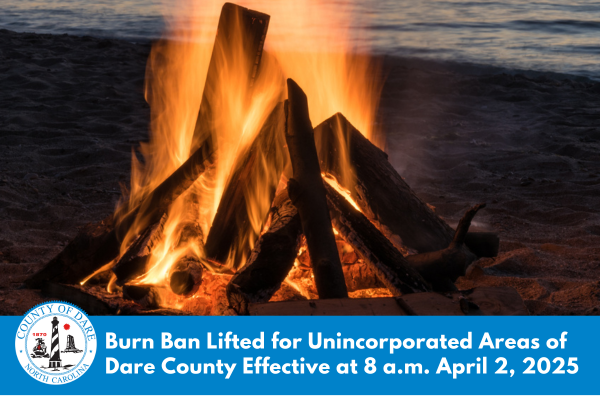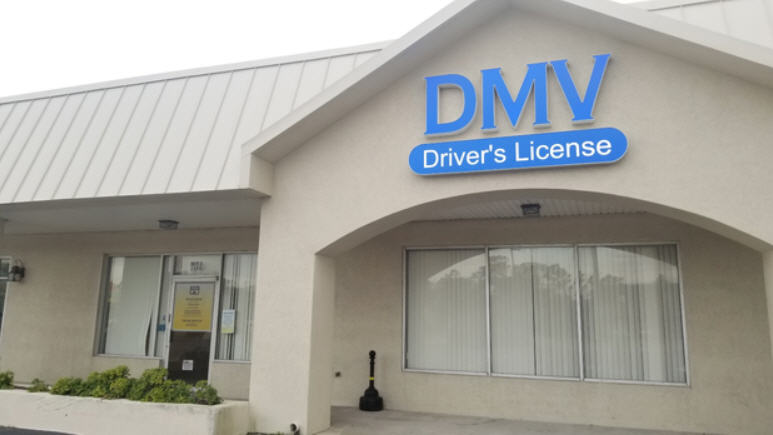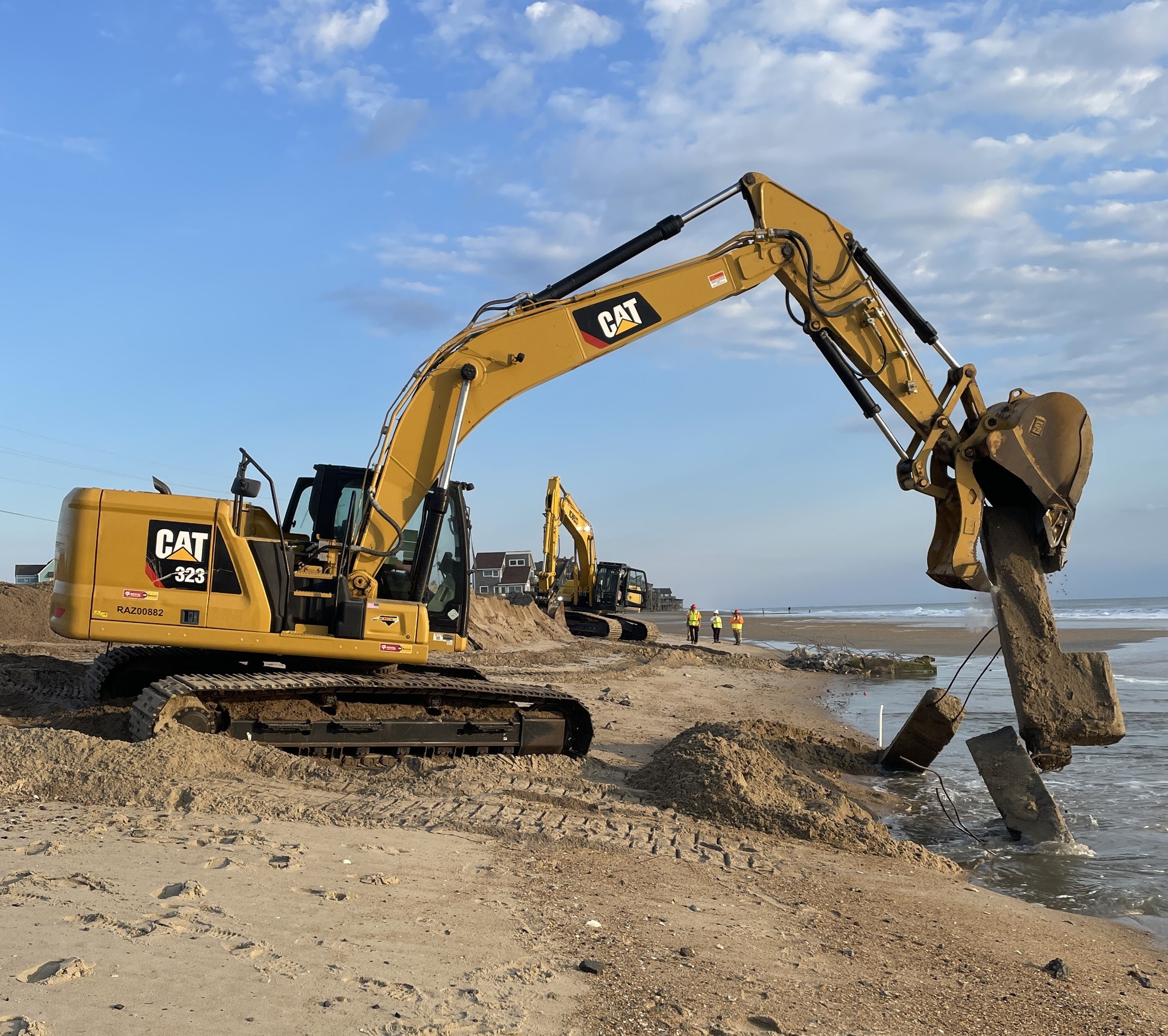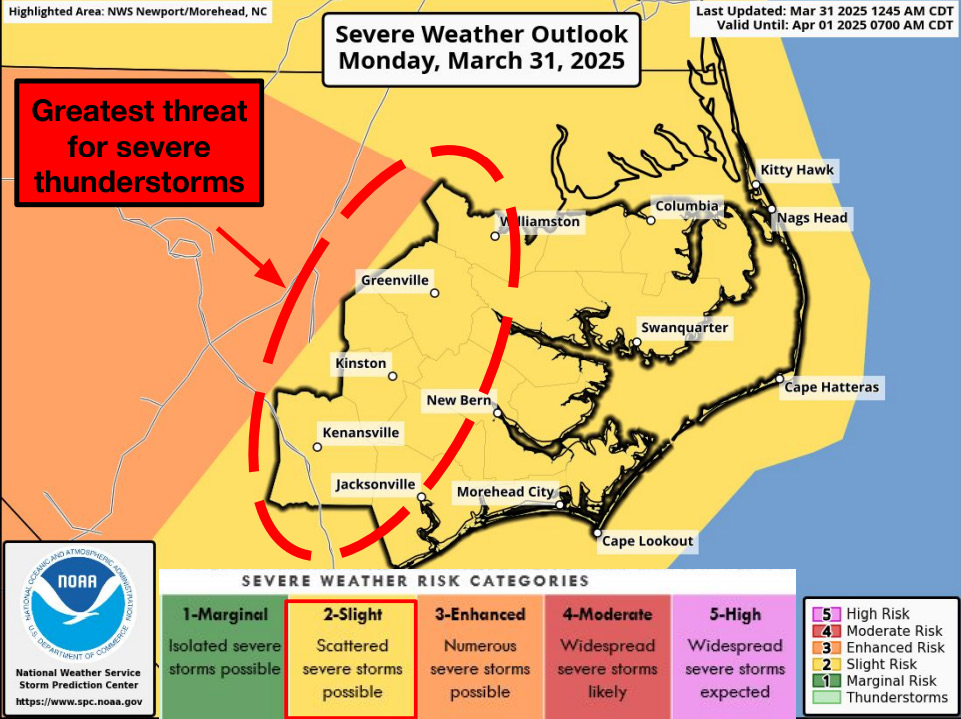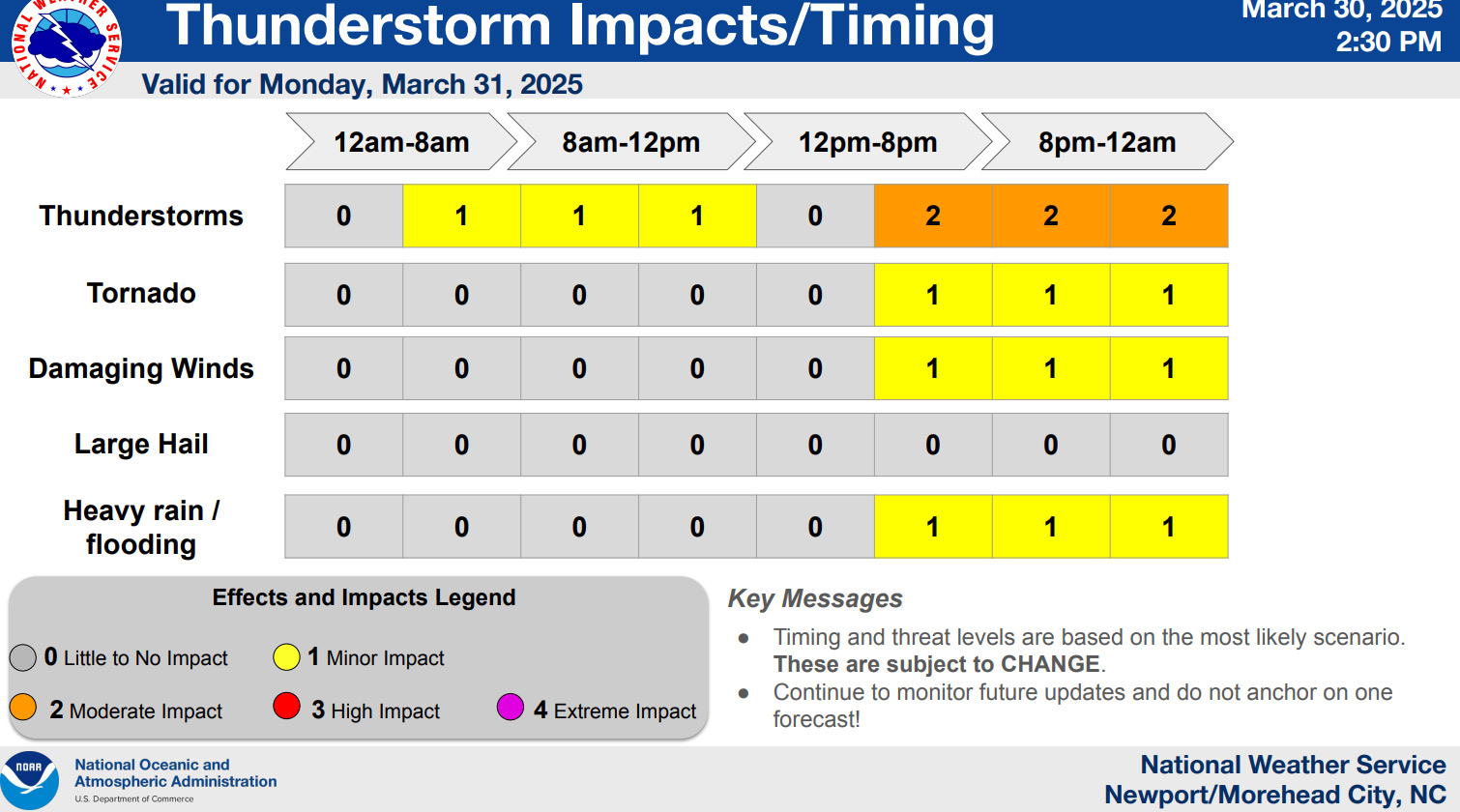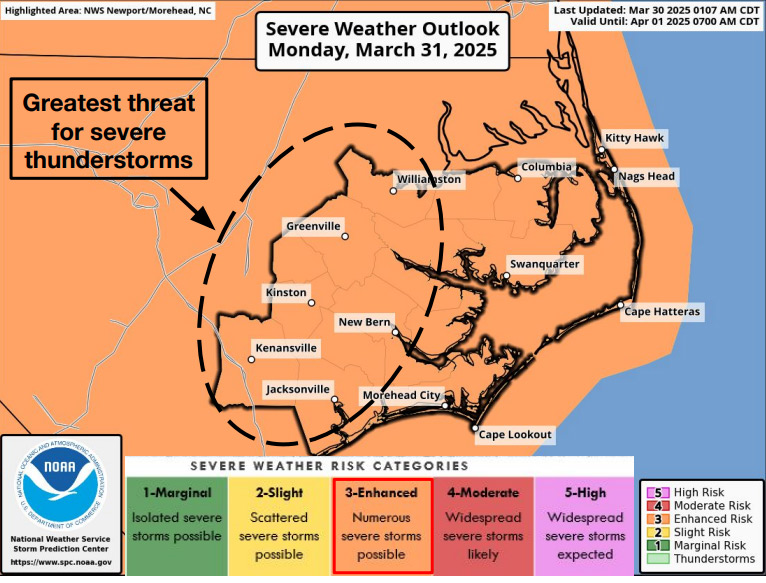Residents of tri-villages shout down zoning proposal
Property owners from Hatteras Island’s northern villages came out in force Wednesday night to tell the Dare County Planning Board in no uncertain terms that they did not want to change their current zoning.
A vocal and at times raucous standing-room-only crowd filled every seat and lined the walls of the Rodanthe-Waves-Salvo Community Center to provide feedback on a proposed zoning map that would create new commercial and residential zones for property in the tri-villages.
The villages are currently zoned S-1, which permits nearly all uses.
“Myself and most people in here are opposed to the zoning,” Rodanthe resident Ryan Gentry told county planning director Donna Creef. “I think the pretense that this zoning has to happen is false.”
Presenting a petition to Creef with 216 signatures from opponents, Gentry, who described his family’s roots as 14th-generation, said that the plan has been “sold as a done deal” and is “ ridiculous.”
“If you’ve got an issue,” he said to applause, “there’s another way to go about it besides changing zoning in the whole tri-village area.”
Minutes into the meeting, the negative tone of the meeting was foreshadowed by a loud and aggressive outburst by Rodanthe resident Willie Smith, who leapt out of his seat, shouting and thrusting his finger at Creef, “What gives you the right to make a decision? Whatever we do to our property is our own business. Let me tell you something, we were born and raised here.”
Smith attributed the zoning idea to outsiders who have moved to the villages.
Even after Planning Board Chairman Elmer Midgett ordered Smith to sit down and be quiet, Smith interrupted several more times.
“No sir, I won’t,” he told Midgett, whose family is from Rodanthe. “I got more right to be here than you ever have.”
About 40 minutes after the meeting started, two sheriff’s deputies quietly arrived.
People in the audience appeared either uncomfortable or impatient with the heightened tension, although some egged Smith on.
“It was a tinderbox,” Creef said later.
But even after things calmed down, most of those who came to the microphone spoke in opposition, and some echoed Smith’s sentiments.
“I have a right to say no,” said Salvo resident Joseph Wells, who made no attempt to hide his anger. “I don’t trust the Dare County government. I don’t trust the state nor the federal government either.”
At that, a woman standing along the wall whispered, “Who does?”
“We don’t need control,” Wells continued. “We all get along . . . just go over to the guy’s yard and tell him, ‘Can you turn down your light?’”
The effort to create a stricter zoning map for the three adjacent villages was prompted earlier this year by a letter from the Rodanthe-Waves-Salvo Civic Association to the county, asking it to create a plan with site-specific uses. That letter was inspired by an earlier decision by the Planning Board that approved a controversial plan to construct a concrete plant in Waves because zoning permitted it. Last November, seven residents sent property and business owners a letter urging them to petition the county to start the planning process.
Along with Frisco, the tri-villages –- treated as a single entity because of its close geography and community connections – remain the only two communities in Dare County with S-1 zoning, which restricts setbacks and building heights, but permits most other uses. Frisco turned down more zoning in 1998, and a prior effort to rezone the three villages started years ago but was dropped. All of Hatteras was zoned S-1 in 1987.
Businessman Trip Forman, who owns REAL Watersports, was one of the few who spoke unambiguously in favor of zoning. Others said they wanted to keep things the way they are, although at the same time many seemed sympathetic about concerns about industry and intrusive lighting.
Judy Sagan, of Salvo, said she is in favor of “smart growth” in the community, and supports both the S-1 zoning and Creef. But she also expressed reservations about the potential impact of bright lighting and future mining activities.
“I still like to go out on my deck and see the stars,” she said. “If we don’t have this, that will go away.”
Others pointed out that, whether through this zoning proposal or not, it was worth discussing how to preserve the character and lifestyle of the villages into the future.
Bonnie Covey, a small business owner who moved from Myrtle Beach, said that she always hears tourists say how much they love the island, and how much places like her former beach town have been ruined by development.
“I want everyone to think about that,” she said. “You want to keep it the way it is. Everybody here depends on tourists. But they’re not going to like if it changes too much.”
Of the 33 people who spoke, 24 were opposed and nine were not opposed.
Numerous people on the list to speak declined when called, although it is not known if they signed up by mistake, or were intimidated.
Creef, who had served as assistant planner under former planning director Ray Sturza, said in a later interview that she had heard similar objections during zoning processes in other communities, although “maybe not as vehemently expressed.”
“Zoning is always controversial,” she said, adding that it’s to be expected that people take it personally. “It’s land use. It affects their property and their property rights. They take it –appropriately – seriously.”
On Hatteras, where islanders often have felt besieged by government regulations, Creef has observed that every government entity seems to be grouped together with the National Park Service, the owner of much of the island’s land.
But oft-stated suspicions about zoning in the tri-villages – for instance, it would forbid small home businesses, or outlaw fishing equipment in the yards — were unfounded. At prior meetings, Creef had explained that the nature of doing business was incorporated into the plan, and nearly every current activity would be considered conforming in the new zoning maps.
Also, she said, no changes would be imposed retroactively on existing businesses, including those with bad lighting, neglected property and undesirable industry. The proposed plan is geared to control future uses in a way that is good for the community.
The proposed S-2 designation would still allow a concrete plant, Creef said, but it would likely be built in a more appropriate location. And under the proposed RWS-3 designation, a “very broad range” of commercial uses, based on both existing and future uses suited to a village, would be provided.
Creef said it would not have been appropriate at Wednesday’s meeting for her to respond to the misunderstandings.
Although the approach to zoning the tri-villages was similar to the successful zoning process in Wanchese, Creef said, the Roanoke Island community has more year round residents. That may explain why the Wanchese process had less of an “us versus them” atmosphere.
From the beginning, Creef said she promised that the zoning plan would not happen if the community did not want it. And from what she heard Wednesday night, that is the case.
As the planning director, she makes a recommendation to the Planning Board, which in turn makes a recommendation to the county Board of Commissioners. Creef encouraged members of the community to attend the Planning Board meeting on Nov. 9 at 7 p.m. in Manteo, when the Rodanthe-Waves-Salvo zoning proposal will be on the agenda.
“My recommendation to them is that the community has spoken,” Creef told the audience, “and they don’t want any changes.”




